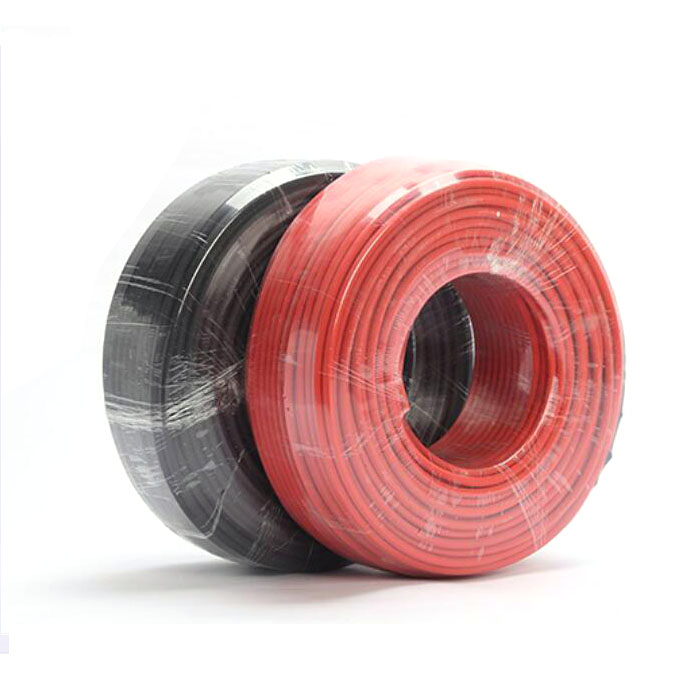The Crucial Role of Insulation Resistance in Evaluating Wire Quality
2024-07-22
Introduction
In the world of electrical engineering and electronics, wire quality is paramount to ensuring the safety, efficiency, and longevity of electrical systems. Among the various parameters used to evaluate wire quality, insulation resistance stands out as a critical factor. This blog will delve into the role of insulation resistance in evaluating wire quality, highlighting its importance and how it impacts the overall performance of electrical systems.
Understanding Insulation Resistance
Insulation resistance is the measure of a wire's ability to resist the flow of electrical current through its insulating material. This resistance is crucial in preventing electrical leakage and maintaining the integrity of the electrical system.
Key Concepts
- Insulating Material: The material surrounding the conductive core of the wire, designed to prevent unintended current flow and protect against electrical shocks and short circuits.
- Resistance Measurement: Insulation resistance is typically measured in megohms (MΩ) using an insulation resistance tester or megohmmeter.
Importance of Insulation Resistance in Wire Quality
The insulation resistance of a wire is a fundamental parameter that affects several aspects of wire performance and safety.
1. Safety and Reliability
High insulation resistance is essential for ensuring the safety and reliability of electrical systems.
- Prevents Electrical Leakage: Adequate insulation resistance prevents electrical leakage, which can lead to short circuits, electrical fires, and equipment damage.
- Protects Against Electrical Shocks: Proper insulation ensures that the electrical current stays within the conductive path, protecting users from potential electrical shocks.
2. Performance and Efficiency
Insulation resistance directly impacts the performance and efficiency of electrical systems.
- Minimizes Power Loss: High insulation resistance reduces the risk of power loss due to leakage currents, ensuring that the electrical energy is efficiently transmitted to the intended load.
- Enhances Signal Integrity: In communication and data transmission applications, high insulation resistance helps maintain signal integrity by preventing interference and crosstalk between adjacent wires.
3. Longevity of Electrical Systems
The quality of insulation affects the overall lifespan of electrical systems and components.
- Prevents Degradation: Insulation with high resistance is less likely to degrade over time, which helps maintain the performance and safety of the wire throughout its lifespan.
- Reduces Maintenance Costs: Reliable insulation reduces the need for frequent maintenance and replacements, lowering the overall cost of ownership for electrical systems.
Factors Affecting Insulation Resistance
Several factors can influence the insulation resistance of a wire, and understanding these factors is crucial for evaluating wire quality.
1. Insulating Material Quality
The type and quality of the insulating material used in the wire significantly impact its insulation resistance.
- Material Properties: Materials like PVC, rubber, and Teflon have different insulation properties. High-quality insulating materials with high dielectric strength offer better insulation resistance.
- Manufacturing Process: The manufacturing process, including the purity of the insulating material and the application method, affects the insulation resistance. Flaws or impurities can reduce the effectiveness of the insulation.
2. Environmental Conditions
Environmental factors can affect the insulation resistance of wires over time.
- Temperature: High temperatures can cause insulating materials to degrade, reducing insulation resistance. It is essential to choose materials that can withstand the operating temperature range of the application.
- Humidity and Moisture: Moisture ingress can significantly reduce insulation resistance, leading to electrical leakage and potential failures. Proper sealing and moisture-resistant materials are crucial in humid environments.
- Chemical Exposure: Exposure to chemicals and corrosive substances can deteriorate the insulating material, impacting its resistance properties.
3. Age and Wear
The age and physical condition of the wire also play a role in insulation resistance.
- Aging: Over time, insulating materials can deteriorate due to environmental exposure and operational stresses, leading to a decrease in insulation resistance.
- Mechanical Damage: Physical damage, such as cuts, abrasions, or bending, can compromise the insulation and reduce its resistance.
Testing Insulation Resistance
Regular testing of insulation resistance is vital for maintaining wire quality and ensuring the safety and reliability of electrical systems.
1. Insulation Resistance Testing
Using an insulation resistance tester, technicians can measure the resistance of the wire's insulation.
- Procedure: The tester applies a high DC voltage to the wire and measures the resistance between the conductor and the insulating material.
- Acceptance Criteria: Industry standards and regulations provide guidelines for acceptable insulation resistance values, depending on the application and operating conditions.
2. Periodic Inspections
Regular inspections and testing help identify potential issues before they lead to failures.
- Preventive Maintenance: Periodic insulation resistance testing is part of preventive maintenance programs to ensure the ongoing reliability of electrical systems.
- Troubleshooting: Insulation resistance testing can help diagnose insulation problems, such as degradation or damage, allowing for timely repairs or replacements.
Conclusion
Insulation resistance plays a crucial role in evaluating wire quality, impacting the safety, performance, efficiency, and longevity of electrical systems. High insulation resistance prevents electrical leakage, enhances signal integrity, and reduces the risk of electrical hazards. Understanding the factors that affect insulation resistance and regularly testing it are essential practices for maintaining reliable and efficient electrical systems. By prioritizing insulation resistance in wire selection and maintenance, businesses and individuals can ensure the optimal performance and safety of their electrical installations.



